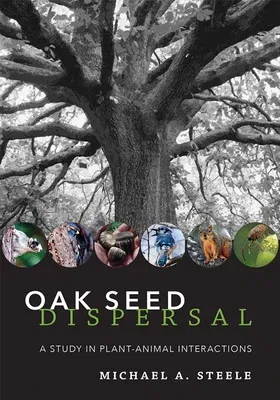The definitive examination of oak forest evolutionary ecology.
Seed dispersal is a critical stage in the life cycle of most flowering
plants. The process can have far-reaching effects on a species' biology,
especially numerous aspects of its ecology and evolution. This is
particularly the case for the oaks, in which the dispersal of the acorn
is tied to numerous tree characteristics, as well as the behavior and
ecology of the animals that feed on and move these seeds to their final
destination. Forest structure, composition, and genetics often follow
directly from the dispersal process--while also influencing it in turn.
In Oak Seed Dispersal, Michael A. Steele draws on three decades of
field research across the globe (e.g., the United States, Mexico,
Central America, Europe, and China) to describe the interactions between
oaks and their seed consumers. Rodents, birds, and insects, he writes,
collectively influence the survival, movement, and germination of
acorns, as well as the establishment of seedlings, often indicating a
coevolutionary bond between oaks and their seed consumers. This bond can
only be understood by unraveling the complex interactions that occur in
the context of factors such as partial seed consumption due to acorn
chemistry, scatterhoarding, predation of the seed consumers by other
organisms, and the limiting effects of masting on insect, rodent, and
jay damage.
Offering new insights on how animal-mediated dispersal drives ecological
and evolutionary processes in forest ecosystems, Oak Seed Dispersal
also includes an overview of threatened oak forests across the globe and
explains how a lack of acorn dispersal contributes to many important
conservation challenges. Highly illustrated, the book includes
photographs of key dispersal organisms and tactics, as well as a
foreword by Stephen B. Vander Wall, a leading authority on food hoarding
and animal-mediated seed dispersal, and beautiful artwork by Tad C.
Theimer, also an accomplished ecologist.

